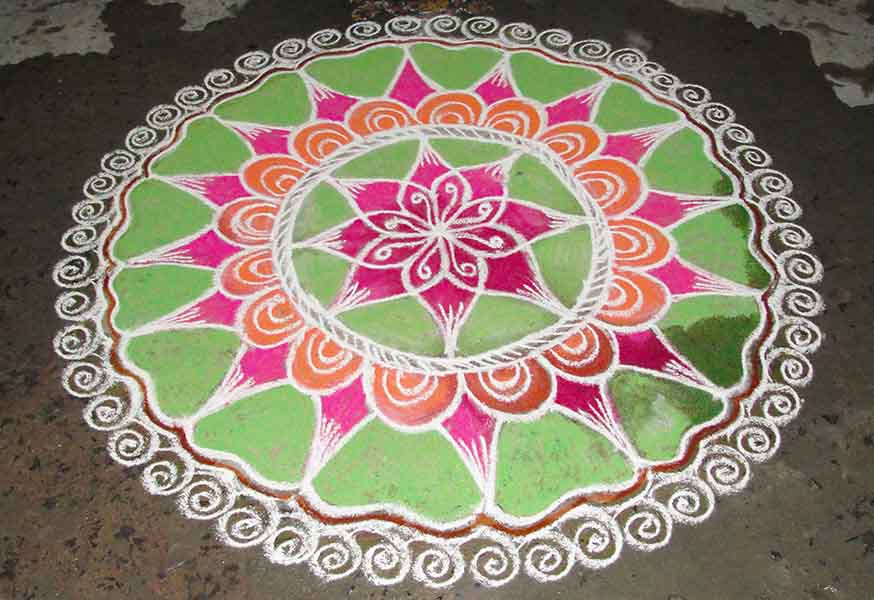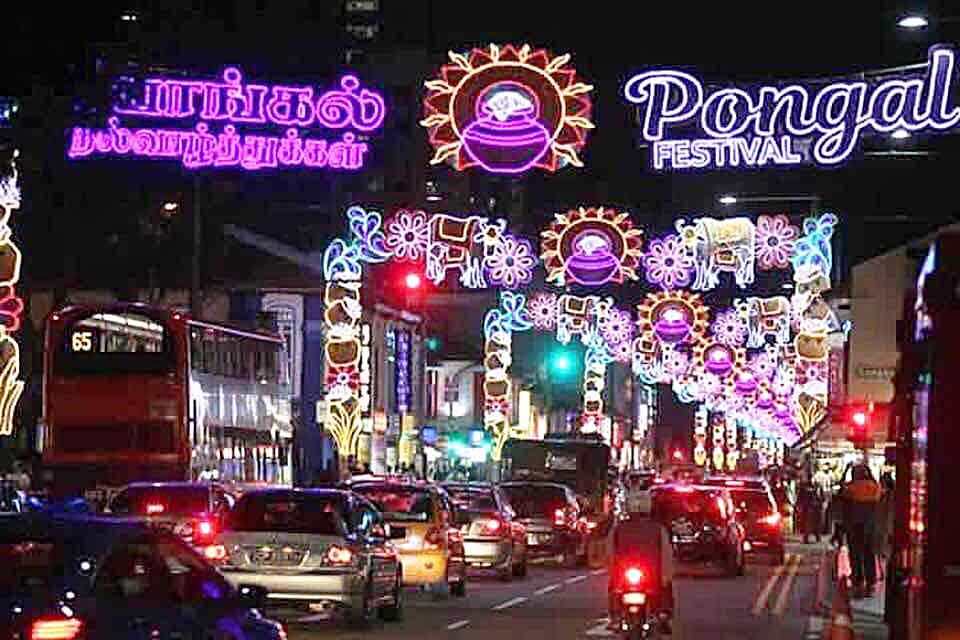In Singapore, Pongal (பொங்கல்) is celebrated on the commencement of the auspicious month of Tai. This four-day festival falls in the Tamil month of Tai (mid-January to mid February).
Pongal Celebration In Singapore
Pongal is a significant harvest festival for Tamils and is celebrated in most parts of Southern India. Indians in Singapore are mainly south Indians descents. Besides the locals, there are many South India foreign workers who will join in the celebration. Pongal means “overflowing” and the festival derives its name from the tradition of boiling rice in a pot till it starts overflowing. Traditionally, a clay pot will be filled with rice and milk with additional ingredients: ginger, turmeric, brown sugar, cashew nuts, raisins and ghee. As the pot of milk boils and overflow, family members cry out “Pongalo Pongal”. This symbolises overflowing of prosperity and happiness. In Singapore, with most families residing in high-rise apartments, this has been an unusual sight as most of them boil Pongol over their gas stoves in the kitchen.
Each of the four days has a different significance.
When is Pongal 2021
First Day – Bhogi Pongal
14 January 2021(Thursday)
Second Day – Surya Pongal
15 January 2021(Thursday)
Third Day – Mattu Pongal
16 January 2021(Thursday)
Last Day – Kanum Pongal
17 January 2021 (Sunday)
First Day – Bhogi Pongal
On the first day, Bhogi Pongal, celebrations begin with the worship of Lord Indra. For a fresh start of the year, Tamils will have thorough spring-cleaning, discarding of old belongings. To mark the first day, Indian families also put on new clothes.
Second Day – Surya Pongal
On the second day, Surya Pongal, Tamils honoured the Hindu Sun God named Surya. Every household cooks a pot of rice with milk to offer up to Surya at dawn.
Pongal means to ‘overflow’. Therefore, pot of rice has to bubble over to symbolise prosperity and abundance. This is then served to members of the family as well as any guests. It is a very social festival, as relatives and friends visit each other and exchange greetings.
Third Day – Mattu Pongal
The third day, called Mattu Pongal, is set aside to honour cattle–cows are sacred animals in the Hindu religion.
Fourth Day – Kanum Pongal
Fourth Day is called Kanum Pongal or Kanu. A leaf of the turmeric plant is placed outside the house and the leftover sweet Pongal. On this day, many families hold reunions.
Kolam in Singapore home

In this festival, some Singapore homes is decorated with Kolam. Kolams (floral designs) use rice flour in exquisite patterns combining dots and lines.
Popular food during Pongal
- Ladoo (laddu)
- Kesari
- Murukku
- Payasam (Also known as Payasa, Ksheeram or Kheer)
- Pongal
Pongal (dish)
Pongal also happens to be the name of the traditional sweet dish of “Pongal”. Indians will boil jaggery with sweetened rice boiled with jaggery to make the dish. Traditionally, Indians use newly-harvested rice during this festive time.
Places to visit in Singapore during Pongal
Campbell Lane
Campbell Lane situated in Little India. It changed into a pedestrian street with stalls selling special festive souvenirs and include regular Pongal-themed performances.
Kinta Road
At Kinta road, you can catch some cultural dances and an exciting mass Pongal cooking contest in the centre of a beautiful street light-up.
Sri Senpaga Vinayagar Temple
Address: 19 Ceylon Road, Singapore 429613
The temple’s presiding deity is a Hindu god Ganesha. The ancient South Indian temple designed in the architectural style that flourished in the 7th-century Chola dynasty. Its main tower entrance is 21 metre, five-tiered structure with a teakwood door 4.5m high. This design feature had been made high enough for humans on elephants to enter.
Bukit Panjang CC
Address: 8 Pending Rd, Singapore 678295
Contact: 6506 0900
Since 2008, Bukit Panjang residents of various communities come together to celebrate Pongal every year.

